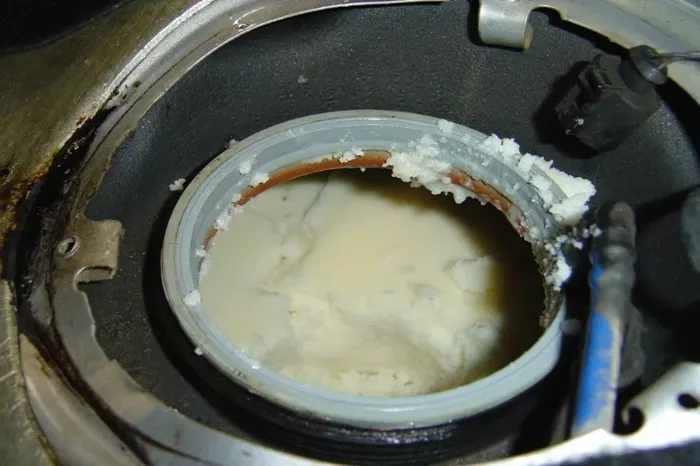Diesel fuel is essential in various industries, powering vehicles, machinery, and generators. One of the common concerns with diesel fuel, especially in colder climates, is the presence of wax. Understanding why wax forms in diesel fuel, how it affects engine performance, and how to manage it is crucial for efficient fuel usage and maintenance. This article delves into the reasons behind wax in diesel fuel, its impact, and methods to handle it effectively.
What Is Wax in Diesel Fuel?
Composition of Diesel Fuel
Diesel fuel is a complex mixture of hydrocarbons, derived from crude oil. It contains paraffins, naphthenes, aromatics, and olefins. The composition varies depending on the source of the crude oil and the refining process.
Formation of Wax
Wax in diesel fuel consists primarily of paraffin hydrocarbons. These paraffins can crystallize at lower temperatures, forming solid wax particles. This phenomenon is more pronounced in colder climates, where temperatures drop significantly.
Wax Appearance
When the temperature drops below the diesel fuel’s cloud point, wax crystals begin to form. The cloud point is the temperature at which wax crystals become visible in the fuel, giving it a cloudy appearance. Further cooling leads to an increase in the number and size of these crystals, which can eventually solidify and clog fuel filters and lines.
Why Does Wax Form in Diesel Fuel?
Chemical Nature of Diesel Fuel
Diesel fuel contains a significant amount of paraffinic hydrocarbons. These hydrocarbons have higher melting points compared to other components in the fuel. When temperatures drop, these paraffins solidify, leading to wax formation.
Temperature Impact
The primary factor influencing wax formation is temperature. As the temperature decreases, the solubility of paraffins in diesel fuel decreases, causing them to precipitate out as solid wax crystals. This process is similar to how water freezes into ice when the temperature drops below 0°C (32°F).
Refining Processes
Different refining processes can influence the wax content in diesel fuel. Hydrotreating, a common refining process, reduces the sulfur content but can increase the paraffin content, thereby raising the potential for wax formation at lower temperatures.
Effects of Wax in Diesel Fuel
Fuel Filter Clogging
One of the primary issues with wax in diesel fuel is the clogging of fuel filters. Wax crystals can accumulate on the fuel filter, restricting the flow of fuel to the engine. This can cause the engine to run poorly or even stall.
Fuel Line Blockages
In extreme cases, wax can solidify within the fuel lines, blocking the flow of fuel entirely. This can lead to significant operational disruptions, particularly in cold climates where diesel engines are commonly used in transportation and heavy machinery.
Engine Performance
The presence of wax in diesel fuel can negatively impact engine performance. Clogged filters and blocked fuel lines reduce the amount of fuel reaching the engine, leading to decreased power, rough idling, and difficulty starting the engine.
See also: Is Diesel Fuel Less Refined Than Gasoline?
Managing Wax in Diesel Fuel
Cold Flow Improvers
Cold flow improvers are additives that modify the size and shape of wax crystals, preventing them from agglomerating and clogging filters and fuel lines. These additives help maintain fuel flow at lower temperatures.
Fuel Blending
Blending diesel fuel with kerosene or other lighter fuels can lower the overall wax content and improve cold flow properties. This method is commonly used in colder regions to ensure reliable engine performance.
Fuel Heating
Heating the fuel system, including fuel tanks, lines, and filters, can prevent wax from solidifying. Many diesel engines are equipped with fuel heaters that activate at low temperatures to keep the fuel flowing smoothly.
Proper Storage
Storing diesel fuel in insulated or heated tanks can help maintain a higher temperature, preventing wax formation. Proper storage practices are essential, especially for backup generators and machinery that may sit unused for extended periods.
Conclusion
Wax formation in diesel fuel is a common issue, particularly in colder climates. Understanding the chemical nature of diesel fuel, the factors influencing wax formation, and the methods to manage it are crucial for maintaining engine performance and reliability. By using cold flow improvers, blending fuels, heating fuel systems, and practicing proper storage, the impact of wax in diesel fuel can be mitigated effectively. This ensures that diesel engines continue to operate efficiently, even in challenging conditions.
FAQs
1.Does wax dissolve in diesel?
Wax, which is primarily paraffin, does not dissolve in diesel fuel. Instead, it tends to crystallize and solidify, especially in colder temperatures, leading to potential fuel filter clogging and engine issues.
2.At what temperature does diesel fuel wax?
Diesel fuel waxes or begins to gel typically at temperatures below 32°F (0°C). This is known as the cloud point, where paraffin molecules start to solidify and can potentially clog fuel filters and lines.
3.How to detect paraffin in diesel?
Paraffin in diesel can be detected by visual inspection for cloudiness or a waxy appearance in the fuel, particularly when temperatures drop. Additionally, fuel analysis tests can determine the presence and concentration of paraffin.
4.Why is diesel fuel clear?
Diesel fuel is clear because it is refined to remove impurities and contaminants that could otherwise affect engine performance. The clarity ensures optimal combustion and efficient operation of diesel engines.
5.When to put antigel in diesel?
Antigel additives should be used in diesel fuel before temperatures drop to the cloud point (typically around 32°F or 0°C) to prevent wax formation and maintain fuel flow. It’s recommended to use antigel according to manufacturer guidelines based on local climate conditions.
Related topic:
Will Diesel Fuel Ruin a Gas Engine?

